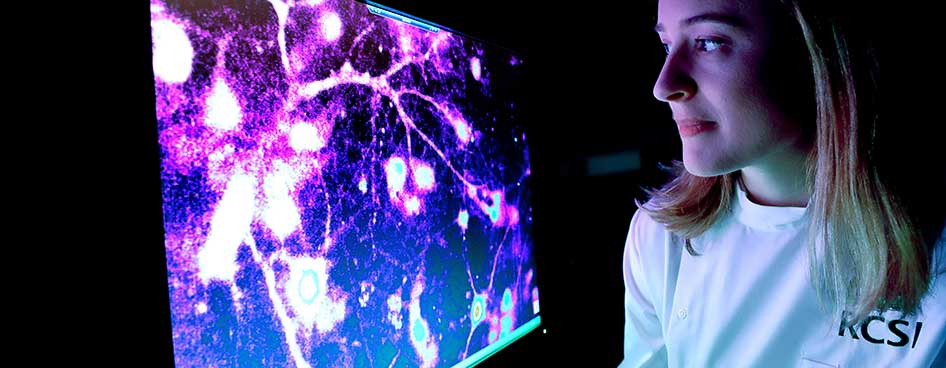Technologies to remove the unpredictability of uncontrolled seizures for people with epilepsy are a very real possibility following a new RCSI study that identified a pattern of molecules that appear in the blood before a seizure happens.
This discovery could lead to the development of an early warning system that would enable people with epilepsy to know when they are at risk of seizure. Epilepsy patients often report that one of the most difficult aspects of living with the disease is never knowing when a seizure will occur.
Approximately 40,000 people in Ireland have epilepsy and one third of those do not respond to current treatments, meaning they continue to experience seizures. The World Health Organisation estimates that more than 50 million people worldwide have epilepsy.
The research, led by Professor Jochen Prehn, Dr Marion Hogg and a team at FutureNeuro – the SFI Research Centre for chronic and rare neurological diseases hosted at RCSI – is published in the Journal of Clinical Investigation (JCI).

Using blood samples from people with epilepsy at the Epilepsy Monitoring Unit in Beaumont Hospital, Dublin and in a similar specialist centre in Marburg, Germany, the group found that fragment levels of three transfer RNAs (tRNAs) 'spike' in the blood many hours before a seizure.
These tRNAs are closely related to DNA that performs an important role in building proteins within the cell. When cells are stressed, tRNAs are cut into fragments. Higher levels of the fragments in the blood could reflect that brain cells are under stress in the build-up to a seizure event.
The team at FutureNeuro hope to now develop a test prototype, similar to a blood sugar monitor that can potentially predict when a seizure might occur.
Funders of the research included Science Foundation Ireland (SFI), the European Regional Development Fund, FutureNeuro industry partners and the European Union’s ‘Seventh Framework’ Programme FP7 (EpimiRNA).
RCSI is committed to achieving a better and more sustainable future through the UN Sustainable Development Goals.
